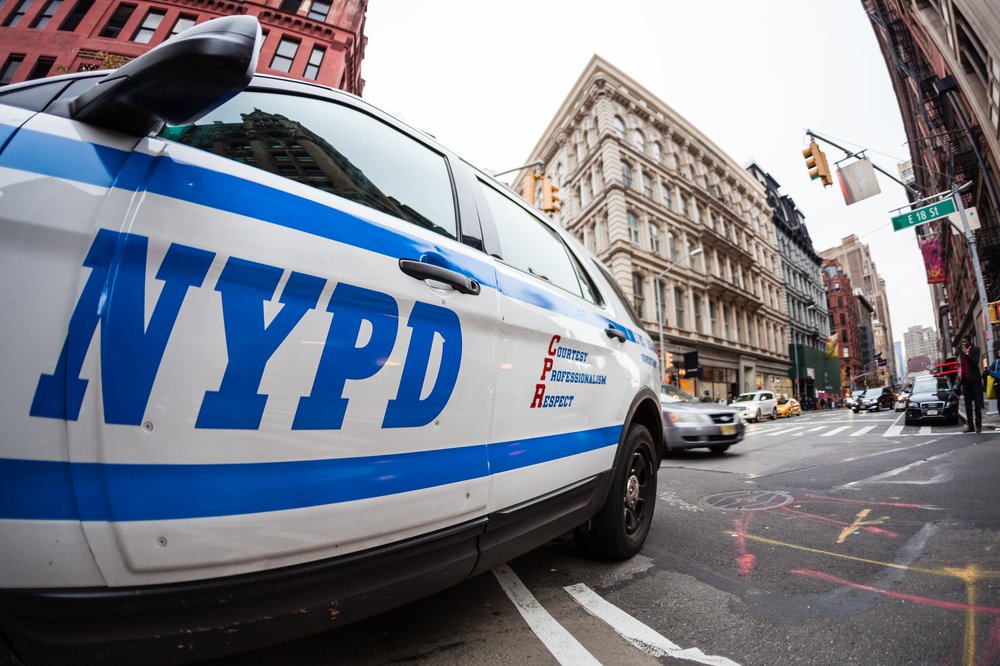NYPD says proactive approach has led to a drop in many major crimes
July 10, 2023, 6:01 a.m.
But some experts said there are downsides to increasing enforcement — and that it’s not necessarily the sole cause of the crime drops.

The NYPD’s proactive approach to enforcement in recent months has coincided with a decrease in serious crimes — a correlation that acting Commissioner Edward Caban said was “no coincidence” at a press conference last week.
But some experts said there are downsides to increasing enforcement — and that it’s not necessarily the sole cause of the crime drops.
Caban said in recent months, police have been focusing on so-called quality of life crimes — like illegal drug sales, public drinking and public urination. They have also been using controversial proactive enforcement measures like stop-and-frisk.
According to the NYPD, homicides, rapes, burglaries, robberies and grand larcenies are all down in the first half of this year. Shootings have also decreased by more than 25%, department data show. Meanwhile, police say they've made more arrests between January and June than in any six-month period since 2000.
Along with other quality of life crimes, NYPD Chief of Patrol John Chell said that this year, officers have been particularly focused on illegal dirt bikes and so-called "ghost cars." Those are vehicles with fake or covered license plates. Chell said they are often connected to other crimes, like shootings and robberies.
"So, we made a pledge: no more,” he said at the quarterly crime statistics press briefing. “You are not going to drive around this city in a reckless manner, thinking you can do whatever you want to do with your attitude and commit crimes."
But according to a data analysis by the nonprofit newsroom THE CITY, the ramped-up enforcement has led to a spike in car chases in recent months. Several of those vehicle pursuits resulted in deaths, the state attorney general’s office confirmed to Gothamist.
Videos have surfaced online showing police cruisers tailing drivers or weaving in and out of traffic. Last month, a 17-year-old crashed his moped into a guardrail after police chased him on a promenade in Bay Ridge. In another incident, a police SUV drove toward a motorbike on the highway, nearly pushing the rider into the concrete barricade at some points.
While many other crimes are down, car thefts are one of the only major crime categories that is up so far this year — even with the increase in police vehicle pursuits. Grand larceny auto has increased 18% compared to this time last year, according to police data.
Some criminologists say more aggressive enforcement strategies, even for low-level crimes, make the city safer — echoing a message Mayor Eric Adams regularly touts.
“There are a couple missing links between low-level enforcement and shootings that are important, and those missing links may matter. But, just as an indicator that cops are doing more, I think that’s huge,” said Peter Moskos, a professor at John Jay College of Criminal Justice.
Other researchers have questioned the effectiveness of the more aggressive policing strategies — which were largely disavowed at the height of the Black Lives Matter movement — and note they can have unintended consequences.
A recent report from the Data Collaborative for Justice found NYPD summonses for minor charges like disorderly conduct and public alcohol consumption increased by 62% between 2021 and 2022, after consistently dropping for years. Researchers also found Black, Latino and low-income New Yorkers received summonses at disproportionate rates.
In a recent interview about the report, Michael Rempel, the director of the Data Collaborative for Justice, said researchers have found one of the most effective ways to reduce crime is when neighbors and friends send one another messages about what types of behaviors will be tolerated in the community.
He said it happens among peers, when “people are sort of informally communicating to each other within the community that misconduct is unacceptable."
That, he said, is perhaps more successful than "broken windows policing," the idea that broadly enforcing low-level crimes drives down more serious criminal activity.
“Enforcement tends not to have a direct impact on criminal behaviors,” Rempel said.